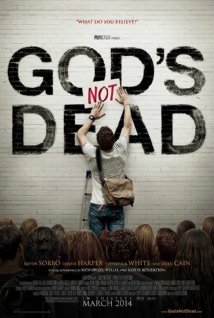Not long ago, a friend shared with me this quote from Peter Cartwright, Methodist circuit rider and both friend and adversary to Abraham Lincoln:
Educated preachers remind me of lettuce growing under the shade of a peach-tree, they make me turn away sick and faint.
Cartwright believed that education robbed a preacher’s faith and passion, leaving that preacher as weak and faded as wilted lettuce grown in the shade!

Peter Cartwright is not the only one to question the value of education for the life of faith. In the popular film “God’s Not Dead,” an atheistic professor threatens to fail a godly young man because he will not deny God’s existence. The two debate, and of course the student’s simple faith triumphs over his professor’s skeptical reason. Still, the lesson is clear: school is a dangerous place for believers!
Perhaps when you went off to college or seminary, your well-meaning friends told you what mine told me: “Be careful that you don’t lose your faith in that place.” But is it true that education threatens faith? A new study by Philip Schwadel, an associate professor of sociology at the University of Nebraska–Lincoln, found that for children of the 1920s up through the Baby Boom generation, those with a college education were more likely to abandon their religion than those without. But, Schwadel discovered,
. . . for the generation born in the 1960s, there’s no difference between those who did and those who did not go to college in their likelihood of religious affiliation. Now, for America’s middle-aged adults who were born in the 1970s, “those without a college education are the most likely to drop out.”
Schwadel proposes that one reason for this shift may be that today’s campuses offer “a lot of room and opportunity for religious connection.” Indeed, many of my seminary students came to Christ in college.
I believe that study is not a threat to faith, but a biblical imperative. Scripture does not call us to mindless obedience! The prophets, poets, and sages of ancient Israel wrestled with God, challenging God’s justice and struggling to understand how ancient tradition fit with their contemporary experience.
For example, in Habakkuk 3, the prophet recites an ancient poem of God the Divine Warrior triumphant over his enemies. But this poem only underlines for Habakkuk the disconnect between the traditional language of his faith, which affirms God’s victory, and his own experience of Babylonian oppression (Hab 3:16; compare Ps 3:7 and Jer 11:20).
Significantly, Habakkuk does not succumb to despair. He resolves to worship God despite his questions:
Though the fig tree doesn’t bloom,
and there’s no produce on the vine;
though the olive crop withers,
and the fields don’t provide food;
though the sheep is cut off from the pen,
and there is no cattle in the stalls;
I will rejoice in the Lord.
I will rejoice in the God of my deliverance (Hab 3:17-18).
Habakkuk found God, not in the certitude of “simple faith,” but in the midst of questioning and doubt. So, I am persuaded, will we all.
When I went back to college, people who loved me expressed concern that I might lose my faith. Then when I enrolled in seminary, I was told it was called a cemetery (not seminary) and that I needed to be careful they don’t turn me into a liberal. Haha! It seems those attitudes are still out there. What do you think, my beloved professor? Has education ruined my faith?
Not at all–though you have certainly enriched all of us who have learned with you, Jean!
Hello Professor:
I sent my completed application into PTS this morning, and look forward to many deep and fascinating discussions with you and the PTS community.
Sincerely yours,
Michael Rushlander